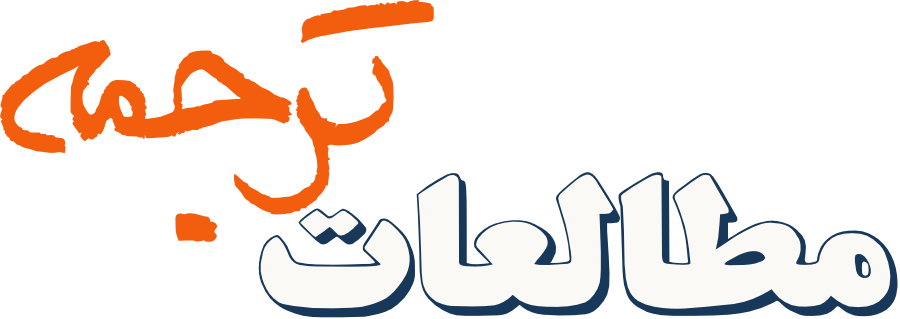دیالکتیک دستکاری در ترجمه شفاهی خودنوگر
چکیده
مطالعۀ دستکاری در ترجمه از کانونهای توجه چشمگیر در مطالعات ترجمه مکتوب و شفاهی بوده است. با وجود این، جنبههای هستی شناسانه، معرفت شناسانه، و غایت شناسانه دستکاری تقریباً ناشناخته مانده است. پژوهش حاضر استدلالی است درباب نقش کلیدی دیالکتیک دستکاری در ترجمه شفاهی (دی. ام. آی. آی.)—ترجمه شفاهی دستکاری شده از متن مبدأ دستکاری شده. بدین منظور، به رسم نمونه، اولین سخنرانی ترامپ در سازمان ملل درباره ایران و ترجمه شفاهی همزمان آن به زبان فارسی در سایۀ تلفیق نظریۀ خودنوگر سیستم اجتماعی لومان (1986، 1995) در سطح کلان گفتمان با نظریۀ روایت اجتماعی-ارتباطی بیکر (2006) در سطح خرد گفتمان مورد بررسی قرار گرفت. یافتهها نشان داد که در مواقعی که پای دیالکتیک دستکاری در ترجمه شفاهی گفتمان سیاسی در میان باشد، ترجمۀ شفاهی درکنار متن مبدأ خود به مثابۀ زیرسیستمی خودنوگر از سیستم اجتماعی ارتباطی احتمالا بتواند نقش روشنگرانه و رهاییبخش گر خود را در موارد زیر ایفا کند: الف) افشای انگیزشهای ایدئولوژیک و مناسبات نامتوازن قدرت مکتون و ریشه دوانده در بازنمود جهان ب) ترویج و اشاعه یا به چالش کشیدن روایتها و ج) از همه جالبتر، ایجاد ترجمه شفاهی خودنوگر براندازگر و تلافیجویانهای (ای. اس. آر. آی.) که برانگیزاننده آن همان چیزی است که فوکو از آن با عنوان رژیمهای حقیقت یاد میکند.
کلمات راهنما:
dialectic of manipulation in interpreting (DMII), narrative theory, autopoiesis, autopoieticly subversive and retaliatory interpretation (ASRI), regimes of truthمراجع
Baker, M. (2006). Translation and conflict: A narrative account. London & New York: Routledge.
Daghigh, A. J., Sanatifar, M. S., & Awang, R. (2018). Modeling van Dijk's Ideological Square in Translation Studies: Investigating Manipulation in Political Discourse Translation. InTRAlinea: Online Translation Journal, 20.
Fairclough, N. (2003). Analyzing discourse. London: Routledge.
Farahzad, F. (2003). Manipulation in translation. Perspectives: Studies in Translatology 11(4), 269–281.
Foucault, M. (1972). The archaeology of knowledge. Trans. by Alen M. Sheridan Smith, London: Tavistock Publications.
Foucault, M. (1977). The political function of the intellectual. Radical Philosophy, 17, 12–14.
Gao, F. (2020). From linguistic manipulation to discourse reconstruction: A case study of conference interpreting at the World Economic Forum in China. In Advances in discourse analysis of translation and interpreting (pp. 24–39). Routledge.
Li, T., & Pan, F. (2021). Reshaping China’s image: a corpus-based analysis of the English translation of Chinese political discourse, Perspectives, 29:3, 354–370, DOI: 10.1080/0907676X.2020.1727540
Lu, F. (2009). Translation, manipulation and the transfer of negative cultural images. The Translator, 15(2), 327–49.
Luhmann, N. (1986). The Autopoiesis of Social Systems. Pp. 172–92 in Sociocybernetic Paradoxes: Observation, Control and Evolution of Self-Steering Systems, eds. F. Geyer and J. Van d. Zeuwen. London: Sage.
Luhmann, N. (1995). Social systems. Trans. John Bednarz, Jr., with Dirk Baecker. Stanford: Stanford University Press.
Maturana, H., & F. Varela. (1980). Autopoiesis and Cognition: The Realization of the Living. Dordrecht: Reidel.
Moradi-Joz, R., Ketabi, S., & Dastjerdi, V. H. (2014). Ideological Manipulation in Subtitling: A Case Study of a Speech Fragment by Mahmoud Ahmadinejad (President of the Islamic Republic of Iran). Perspectives: Studies in Translatology 22 (3), 404–418.
Moradi-Joz, R.., Ketabi, S., & Tavakoli, M. (2019). On conductive argumentation: President Trump’s United Nations address on Iran in focus. Journal of Language and Politics 18(1), 83–106.
Pan, L. (2015). Ideological Positioning in News Translation: A Case Study of Evaluative Resources in Reports on China. Target 27 (2), 215–237.
Salama-Carr, M. (Ed.). (2007). Translating and Interpreting Conflict. Amsterdam and New York: Rodopi.
Tyulenev, S. (2012). Applying Luhmann to translation studies: translation in society. London & New York: Routledge.
Wang, D. (2020). Censorship and manipulation in audiovisual translation. In The Palgrave Handbook of Audiovisual Translation and Media Accessibility (pp. 621–643). Palgrave Macmillan, Cham.
Downloads
چاپشده
ارجاع به مقاله
شماره
نوع مقاله
DOR
مجوز
Copyright Licensee: Iranian Journal of Translation Studies. This article is an open access article distributed under the terms and conditions of the Creative Commons Attribution–NonCommercial 4.0 International (CC BY-NC 4.0 license).





